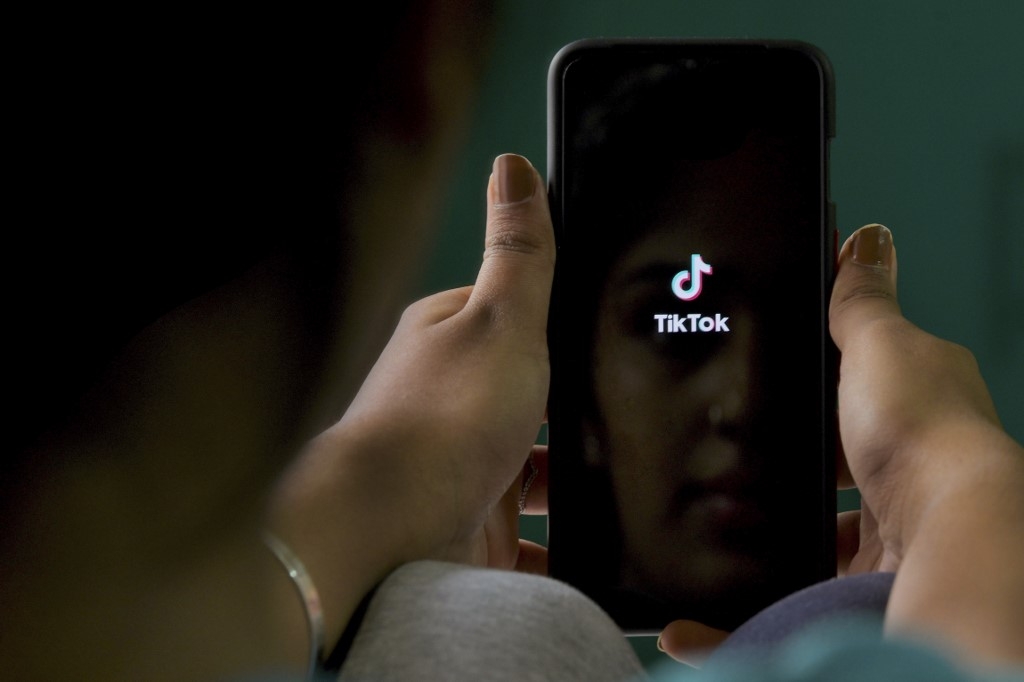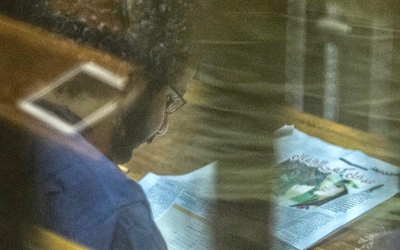Egypt jails female TikTok influencers for two years over 'indecent' videos

An Egyptian court has sentenced five female social media influencers to two years in jail each on charges of violating public morals, a judicial source said.
The verdict against Haneen Hossam, Mowada al-Adham and three others came on Monday, after they had posted footage on the video-sharing app TikTok.
The ruling, which can be appealed, included a fine of 300,000 Egyptian pounds ($18,750) for each defendant, a judicial source said according to the AFP news agency.
"The Cairo economic court sentenced Hossam, Adham and three others to two years after they were convicted of violating society's values," the source said.
In recent months, Egyptian authorities have increased their crackdown on social media personalities, particularly TikTok, Instagram and YouTube female influencers who have faced charges of promoting debauchery and prostitution.
Hossam was arrested in April after posting a three-minute clip telling her 1.3 million followers that girls could make money by working with her.
In May, authorities arrested Adham, who had posted satirical videos on TikTok and Instagram, where she has at least two million followers.
Lawyer Ahmed Hamza al-Bahqiry said the young women were facing separate charges over the sources of their funds, AFP reported.
The arrests highlight a social divide in the deeply conservative country over what constitutes individual freedoms and "social norms".
Human rights lawyer Tarek al-Awadi previously told AFP that the influencers' arrests showed how society was wrestling with the rapid rise of modern communications technology.
Internet penetration has reached over 40 percent of Egypt's youthful population of more than 100 million.
'Dangerous indicator'
"The verdict is shocking, though it was expected. We will see what happens on appeal," women's rights lawyer Intissar al-Saeed told AFP.
"It is still a dangerous indicator… Regardless of the divergent views on the content presented by the girls on TikTok, it still is not a reason for imprisonment."
Last month, an Egyptian court sentenced belly dancer Sama al-Masry to three years in jail for inciting "debauchery" on social media over posts deemed sexually suggestive.
In 2018, a female singer was detained for "incitement to debauchery" after an online video clip that included sensual dance moves went viral.
The previous year, a female pop singer was sentenced to two years in prison on similar charges, also over a video deemed provocative. Her sentence was reduced to a year on appeal.
"The charges of spreading debauchery or violating family values are very loose… and its definition is broad," said Saeed.
Egypt’s cybercrime law, which was issued in 2018, can impose a minimum of at least two years' imprisonment and a fine of up to $18,750 for anyone found to be creating and running an account on the internet that is in breach of the law.
Since Abdel Fattah al-Sisi seized power in a 2013 coup, hundreds of journalists, activists, lawyers and intellectuals have been arrested.
Authorities have also blocked various websites under the guise of state security and monitor personal social media accounts with over 5,000 followers.
In line with the ongoing state censorship, Egypt's Council for Media Regulation announced a ban last month on media outlets and social media users addressing various "sensitive" issues, including Ethiopia's Renaissance Dam, the coronavirus and the conflicts in Libya and the Sinai Peninsula.
Middle East Eye delivers independent and unrivalled coverage and analysis of the Middle East, North Africa and beyond. To learn more about republishing this content and the associated fees, please fill out this form. More about MEE can be found here.






